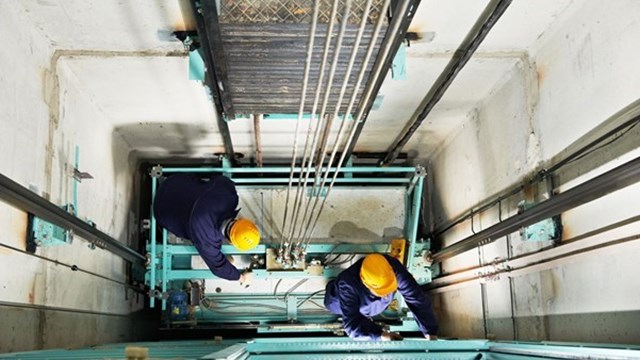
Q. Ours is a 96-unit multi-unit building with 12 tiers of eight condominium units per tier. There are two units on each floor in each tier. Each tier has an elevator that serves the second, third and fourth floor units and there is an elevator stop at grade level. The first floor is a few steps above street level and there is no elevator stop for the first floor units. There are two units that have access to and use the elevators at each floor where the elevator stops.
At present the annual cost for elevator maintenance is included in the annual operating budget and all owners, including those who do not use the elevators, pay according to their percentage of ownership. In recent years the cost of elevator maintenance and repair has increased and first-floor unit owners are asking why they are paying for the elevators they can’t use.
This raises two questions:
1. Does the Illinois Condo Act allow a board to amend our declaration and declare the elevators to be limited common elements assigned to the 72 units that use the elevators?
2. How can the board amend the Declaration and/or bylaws so that annual maintenance cost is only charged to those units that use the elevators?
—Searching for a Remedy
A. “The simple answer is yes, the Illinois Condominium Property Act would allow an amendment to make the elevator a limited common element,” says attorney William Chatt of Cervantes Chatt & Prince P.C., which has offices in Chicago and Burr Ridge. “While those unit owners who do not use the elevator may cringe at contributing to the elevator maintenance, other than buildings with penthouses that have dedicated elevators for those units, this is a common occurrence.
“In the instance cited here, however, from a practical standpoint it’s hard to imagine the 24 units who do not have or need elevator access to the elevator would be able to convince those unit owners who use the elevator of such a change. Further, a limited common element is that portion of the common elements, which is for the exclusive use of an owner such as would be the case for a balcony or parking spot. Here, multiple owners would share in this portion of the common elements
“But again, assuming enough unit owners are in agreement, the association would draft an amendment with language that states the elevator is no longer considered a common element and moving forward a limited common element for tiers two through 11. Aside from drafting the amendment, a new plat of survey will be required to reflect the elevator becoming limited common element to the affected units. The percentage ownership interest would need to change, which would likely require a vote in favor of the amendment from all owners.
“Language as to how the cost to maintain the elevator costs would also be necessary. For instance, would each floor be assessed equally, or--just as with those on the first floor not wanting to pay at all--are the lower units going to argue their proportionate share should be less as their usage is less than upper floors on a proportional basis? Additionally, while the members of the association may agree to this arrangement, any municipality will still look to the association itself for compliance with local code.
“In sum, it is possible to amend the declaration to change the elevator. But there are a number of practical considerations, as well as requirements under the declaration, that may make accomplishing the amendment difficult. The association should work with its management company and legal counsel to ensure it follows all necessary steps according to its declaration.”






Leave a Comment